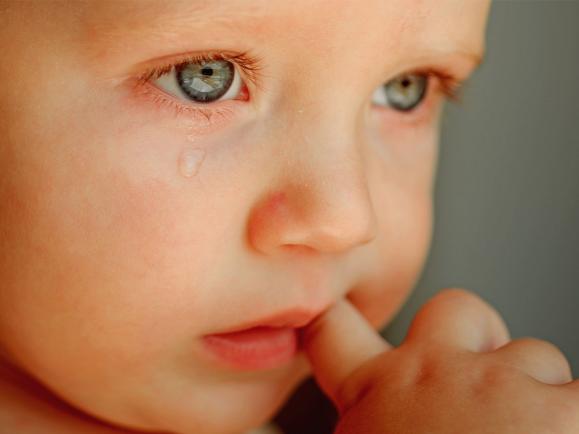
Raising children can sometimes make you feel like you're sailing across the ocean in a two- (or one-) man sailing boat and you're teaching yourself to sail as you go along. No matter how sure you are of the direction you're headed or of the method you'll be using, you'll always come across something you don't know the answer to, like how to teach your toddler not to throw his plate of food across the table when he's mad.
One aspect of parenting many people struggle with is knowing how to talk to young kids in a way they'll understand while still teaching them correct principles. Most parents will tell you it's something you'll learn as you go along, but there are a few things experts agree that parents should avoid saying. Here are some phrases to strike from your parenting vocabulary today.
"Good job!"
Children like to have affirmation for their accomplishments and good deeds, but if you don't specify what they've done well, they won't know what action to duplicate in the future.
Be specific when you praise your child by saying things like, "Look at how round that circle is you drew!" or "Do you see how well you stayed in the lines when you colored that picture?" With actionable praise, your children will improve more rapidly than when they get vague compliments that don't give true direction.
"You're OK"
When your toddler is sad, frustrated or confused, validate his or her feelings rather than dismissing them with this simple phrase. Try helping your child name the emotion he or she is feeling. For instance, you might say, "I can see you're feeling frustrated because you can't zip your coat up. I would feel frustrated if that happened to me, too."
"Let me do it for you"
If you step in every time your daughter tries to brush her hair, how will she learn to groom herself? If you put away the silverware you asked your son to put away two hours ago, he'll miss out on learning about categorization and the consequences of putting off a chore until playtime.
Leadership expert Dr. Tim Elmore told Forbes.com, "When we rescue too quickly and overindulge our children with 'assistance,' we remove the need for them to navigate hardships and solve problems on their own." It might take more time, but allowing your children to experience failure can be an important part of how they learn to do things for themselves.
"I do everything for you"
Be careful of making sweeping generalizations that aren't entirely true. This statement, with the idea that your kids do nothing for themselves, marginalizes what they really can do on their own. Recognize their efforts, give them some credit, and remind yourself that while you do have to do a lot of things for your kids, this is a fleeting time. Someday, they actually will do everything for themselves and you may miss this time when they really needed you.
"You're making great progress at (fill in the blank), but..."
Adding that qualifier at the end of a compliment basically negates all the good your compliment was going to offer your child. When paying your child a compliment, try not to follow it up with something he or she needs to do better. Let the compliment marinate and find another time to offer correction.
"You make me feel ... "
Don't ever lay the blame for your feelings at the feet of your children. It teaches them that you can't control your emotions, and that might lead them to think they can't control their own either. If you're feeling frustrated because of your child's actions, explain your feelings. "I'm feeling upset because I don't like being late," is one explanation you might offer when their dawdling gets you rattled. You'll be surprised by how much your kids can understand and how willing they are to change their behaviors once they understand why they should.
"You can't have dessert until you eat everything on your plate."
Bribing your kids with dessert to get them to eat their dinner just teaches them that the dessert is more desirable than the healthy food they're supposed to be eating. Kid's Health suggests parents try other methods of getting their kids to eat dinner, like telling them they need to eat a "no thank you bite," allowing them to pick one of the items on the dinner menu or by preparing disliked foods in new ways.
"Don't do that!"
Don't do what? Don't walk? Don't play with dolls? Don't breathe too loud? Like praise, telling a child what not to do should involve specific directions so he or she knows what action should not be repeated.
"We're never coming to this store again if you don't calm down!"
Don't make threats you aren't willing to follow through on. For one, kids can generally recognize bluster versus real warnings. And for another, when you don't follow through, it sets a bad precedent about your expectations and may prompt rebellious kids to rebel more often because they assume you won't make good on the promised punishment.
The Strolly is a stroller that grows up with your child. From stroller to bike, it will fit your child for years to come. (But when it comes to dealing with toddler temper tantrums, you're on your own.)

